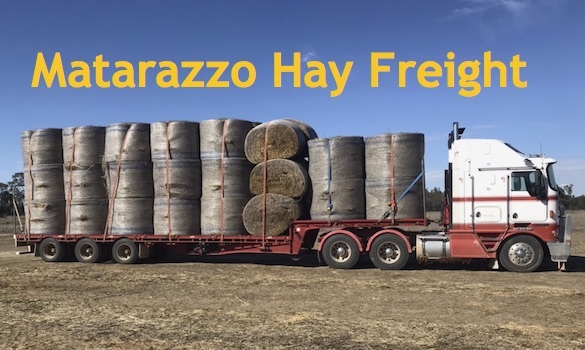German company Claas aims to raise profile
- By: "Farm Tender" News
- Sheep & Wool News
- Aug 02, 2019
- 621 views
- Share

This article is bought to you by Mazaratto Hay Freight.
When Claas surveyed North American farmers about brand recognition, the results disappointingly hovered around 10 percent.
Ad - Need to shift some Hay? Try Mazaratto Hay Freight, Singles, Doubles, Triples, Big or Little Squares, Rolls, North or South. Give them a try - Ad
With its new campaign, "Be Brighter," the 106-year-old German-based farm equipment manufacturer seeks to improve and brighten those results.
Eric Raby, Claas of America president and general manager of sales, has big goals.
"Our goal is doubling the amount of business we do together in the next five years," he told a July 15 meeting of equipment dealers.
"This is what being brighter is all about."
In an interview, Raby said the low brand awareness is partially self-inflicted. Lexion combines, for example, have been sold under a number of brands and colours with little emphasis on the company name. The same issue has plagued other product lines.
"I think a lot of it has to do with the way we've come to market, and we've come to market over the course of many years looking at, first of all forage harvesters through a distribution channel and then combines, through the Cat distribution channel to start with, and then baler and hay tools through another distribution channel, so we've created a little bit of our own fragmentation.
Ad - Need to shift some Hay? Try Mazaratto Hay Freight, Singles, Doubles, Triples, Big or Little Squares, Rolls, North or South. Give them a try - Ad
"So what our plan is, is to start to bring those together and we've done a lot of that, particularly in Western Canada.
"Our plan is to really start to go out to the marketplace now and explain, number one, who is Claas, and number two, why should I care."
The mid-July event at Claas' Omaha operations was the largest new product launch in Claas of America history, showcasing seven new lines.
The next generation of Lexion combines, additional balers and hay tools and new Axion tractors are part of the new offering, with a few other items planned for official launch in late August at the Farm Progress Show in Decatur, Illinois.
Raby said Claas is the market leader for combines in Europe and the global leader in forage harvesters. In tractors, it is expanding its presence on the global stage, having produced its 150,000th tractor last year.
The line that was released Aug. 1 comprises the 200 to 285 horsepower Axion 800 series focused on use in baling, manure handling, tillage and other functions.
Daryl Theis, Claas head of marketing, estimated it will take three to five years for Claas to achieve its sales and customer recognition goals, but noted surveys show high levels of customer satisfaction with the product line and service support.
Marketing specialist Jenna Zeorian said there are major efforts to elevate the Claas brand in North America.
Ad - Need to shift some Hay? Try Mazaratto Hay Freight, Singles, Doubles, Triples, Big or Little Squares, Rolls, North or South. Give them a try - Ad
"We want to convey that Claas is here to stay. We're here to grow. The United States and Canada are two of the six growth areas that Claas has identified globally."
Raby said Claas has about 40 dealerships with about 70 locations in Canada, the bulk of them on the Prairies.
It recently broke ground for a new training facility at its Omaha location, where dealers and service technicians can learn the details of sales and service initiatives and techniques.
Asked about farmers' right to repair, an issue involving the complexity of new equipment and companies' proprietary aspects, Raby agreed it is a consideration.
"Obviously there's failure repair and there's maintenance and obviously we want the farmer to be able to do their own maintenance," he said.
Ad - Need to shift some Hay? Try Mazaratto Hay Freight, Singles, Doubles, Triples, Big or Little Squares, Rolls, North or South. Give them a try - Ad
"Number one is safety, and when you look at the control systems on a lot of these machines in terms of guidance and in terms of autonomy, the more autonomous the machines get, it becomes much more difficult for a farmer to repair that.
"It's not that we don't want them to. It's just that from a safety standpoint and obviously a liability standpoint, we want to make sure that the control systems are operating as they were designed to do and we're responsible to make sure that happens."












Share Ag News Via